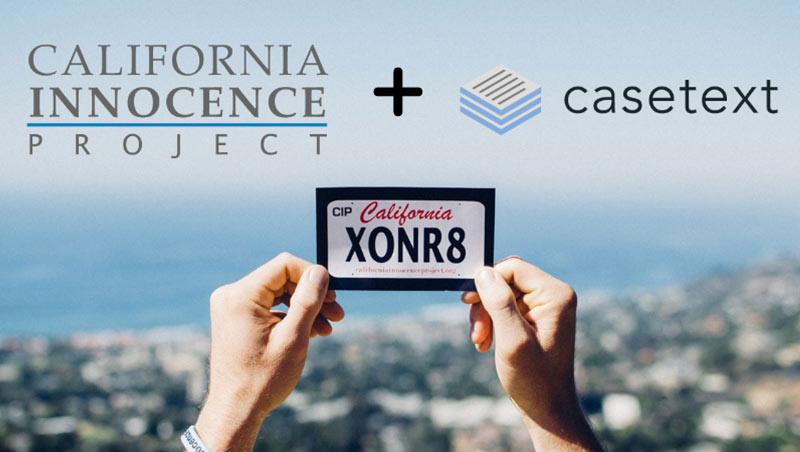
California Innocence Project Embraces AI

With the rapid ascension of Chat-GPT and other AI programs, we are witnessing what may be the most significant technological development in history. Here at California Western, we are already on the forefront of an AI-powered paradigm shift in the way lawyering is done, embracing the possibilities this technology offers to vastly improve our justice system.
In November 2022, CWSL’s California Innocence Project (CIP) became a beta tester for CoCounsel, the company CaseText’s AI legal assistance application. CoCounsel is a generative Large Language Model (LLM) system designed by OpenAI and can “read, write, and understand texts at a post-graduate level.” CoCounsel can do legal research in a fraction of the time that a lawyer can, combing through case files, reviewing and summarizing documents, drafting correspondence, and more.
In this interview, CIP’s managing attorney Michael Semanchik explains how he is using CoCounsel and why he thinks embracing AI is the best course of action for lawyers.
What does CoCounsel free you up to do?
In the past, it would take 15 minutes to draft a letter to a client. CoCounsel made it possible to get a first draft done in under a minute. Similarly, I’ve asked CoCounsel to summarize five pages of transcript on a complicated forensic science topic. It provided a five-bullet summary in plain English. The time saved using skills like these can certainly allow me to do more on my cases.
As for the future, I imagine dropping 2,000 pages of transcripts into a system and getting a perfectly drafted “Statement of Facts” on the other side. That same system might know how to identify all the legal issues in the transcripts and highlight them as possible issues to raise on appeal or in a post-conviction world. We’re definitely getting close, but I would say still a few months to a year off from homing in on exactly what an attorney wants and needs.
Does it make for better lawyering?
As far as analyzing and responding to opposing counsel’s briefs, there’s no question it can make for better lawyering. I would argue that in the long-term, failure to embrace and utilize AI may result in a lawyer not being the best and most competent advocate for their client.
Has it allowed you to take on more clients?
I would say it’s probably too early to tell but I could certainly see a situation where we take on more clients. It’s likely that we will be able to home in on the most viable cases, meaning we’re spending our limited resources most efficiently.
Might it lead to more exonerations?
This is a definite possibility. Relying on humans to sift through thousands of pages of police reports and transcripts looking for a needle in a stack of needles is incredibly challenging, resource intensive, and likely not without some missteps or faults. By “outsourcing” this portion of our process to AI, we should be able to move through cases quicker and locate evidence of innocence that will ultimately lead us to exonerations.
Have you run into any issues with unreliable information?
I have seen blatant errors on ChatGPT. With CoCounsel, I have seen errors, though less so. This may be because the system is relying on the information you provide.
Are there any downsides to using AI in this way?
The only downside is that AI is in its infancy. We still need more lawyers using it every day so the AI and engineers can better craft the responses from the system. And we need additional skills built into the platform to cover all areas of law.
As AI gets more intelligent and efficient, how do you see the field of law– and particularly of innocence projects– evolving?
I would hope to see that getting an innocent person out of prison goes from an average of 16 years down to three or four. Perhaps we get to a point where AI can start to identify wrongful convictions as soon as they happen. I know it sounds odd, but putting innocence organizations out of work is our goal.
